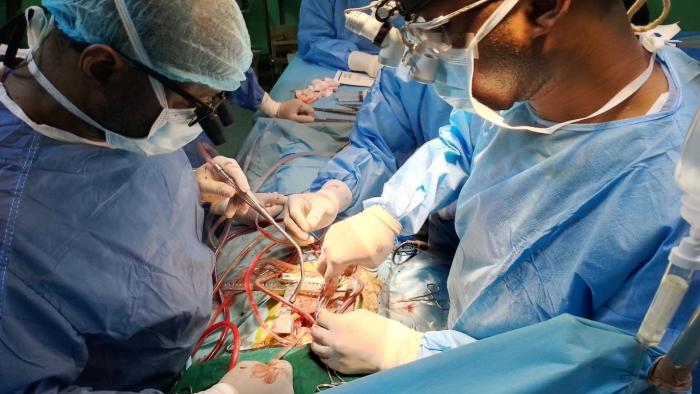Two papers recently published in The Annals of Thoracic Surgery aim to guide the management of thymoma1 and pleural drains following pulmonary lobectomy2 – thoracic conditions and treatments that lack widely accepted guidelines. Recognizing this need, the Society of Thoracic Surgeons (STS) Workforce on Evidenced-Based Surgery convened a task force to develop expert consensus documents to help alleviate this knowledge gap.
Thymoma, a rare epithelial tumor – but also the most common anterior mediastinal tumor in adult patients – is a condition thoracic surgeons will likely encounter as clinicians. However, there is a lack of evidence covering all aspects of treatment due to its relatively low incidence. Managing pleural drains following pulmonary lobectomy is standard practice, yet there are no established guidelines on this topic despite abundant published literature.
Management of thymoma
The STS Workforce on Evidence-Based Surgery, which includes general thoracic surgeons with expertise in thoracic surgical oncology, and medical and radiation oncologists with expertise in neoadjuvant and adjuvant therapies, evaluated existing literature about surgical considerations in managing thymomas, such as:
• Imaging characteristics
• Diagnostic tests
• Staging
• Surgical approach and technique
• Neoadjuvant and adjuvant therapy
• Surgery for advanced or recurrent disease, and
• Postoperative surveillance
Consensus statements were drafted using the modified Delphi method. Votes for each proposed statement were tallied using a 5-point Likert scale, with the option to abstain on those not within the specific authors’ expertise. Statements with 75% of responding authors selecting “agree” or “strongly agree” were considered to have reached a consensus.
Unlike broader guidelines encompassing various aspects of thymoma management, including medical oncology, radiology, and pathology, this paper addresses thymoma from a surgical perspective by guiding surgical interventions, especially in metastatic and recurrent diseases.
"Given the scarcity of randomized controlled trials due to the rarity of thymoma, this document is framed as an expert consensus rather than strict evidence-based clinical practice guidelines," said the study's lead author, Dr. Douglas Liou, clinical associate professor at Stanford Medicine. "Our findings rely more heavily on the combined experience and judgment of experts in the field rather than solely on data from large-scale studies."
Read the Annals article.
Management of pleural drains following pulmonary lobectomy
Similarly, the consensus document developed by the STS Workforce on Evidence-Based Surgery to manage pleural drains includes:
• Choice of drain, including size, type, and number
• Management, such as use of suction versus waterseal and criteria for removal
• Imaging recommendations, including the use of daily and post-pull chest x-rays
• Use of digital drainage systems, and
• Management of prolonged air leak
Workforce members reviewed existing literature on the condition. A consensus using a modified Delphi method consisting of two rounds of voting until 75% agreement on the statements was reached, with a total of thirteen statements that encouraged standardization and stimulated additional research in this critical area.
“Optimal management of these drains should reduce patient discomfort, length of stay, and complications.” said study investigator Dr. Michael Kent, associate professor of surgery at Harvard Medical School. “However, despite how commonly chest tubes are used in practice, the literature must provide more clarity on this subject. Many important questions have yet to be addressed and may require well-designed, prospective randomized trials.”
Read the Annals article.
1. Reference: Liou DZ, Berry MF, Brown LM, Demmy TL, Huang J, Khullar OV, Padda SK, Shah RD, Taylor MD, Toker SA, Weiss E, Wightman SC, Worrell SG, Hayanga JWA, The Society of Thoracic Surgeons Expert Consensus Document on the Surgical Management of Thymomas, The Annals of Thoracic Surgery (2024)
2. Reference: Kent MS, Mitzman B, Diaz-Gutierrez, I, Khullar OV, Fernando H, Backus L, Brunelli A, Cassivi SD, Cerfolio RJ, Crabtree TD, Kakuturu J, Martin LW, Worrell SG, Raymond DP, Schumacher L, Hayanaga JWA, The Society of Thoracic Surgeons Expert Consensus Document on the Management of Pleural Drains following Pulmonary Lobectomy, The Annals of Thoracic Surgery (2024)
